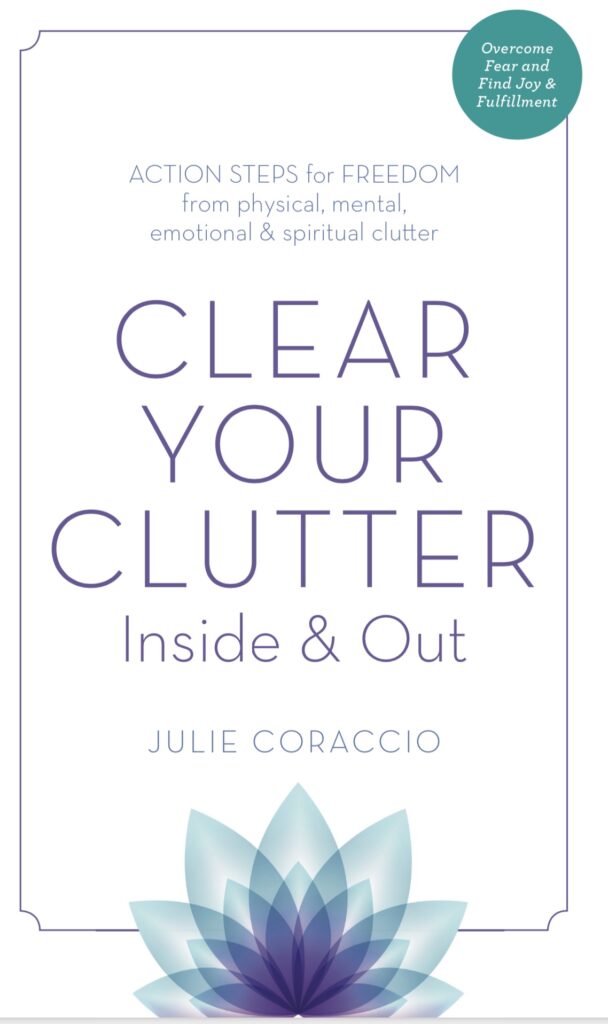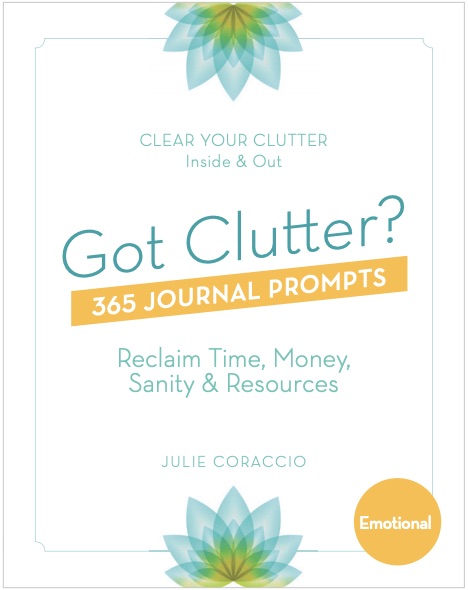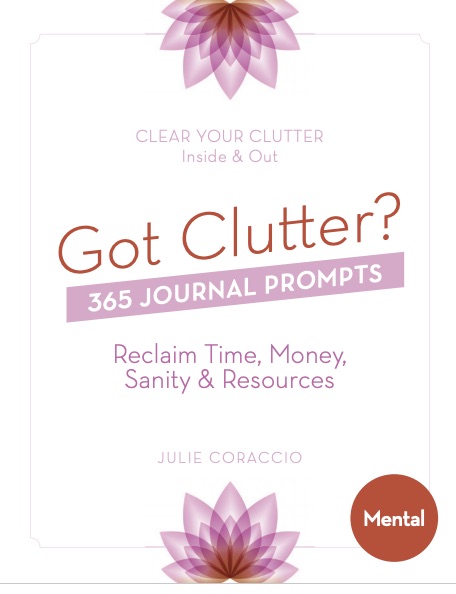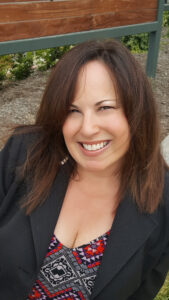Caregivers, this post is for you…
Last month I wrote about the American Brain Tumor Association’s Virtual National Conference. In addition to the sessions I spoke about in that post, another presentation I genuinely appreciated was called “Caring For The Caregiver” given by Jean Arzbaecher of The University of Illinois at Chicago. During that session, I realized I have a pretty great resource that I have been holding out on sharing with you. It all came together for me when Jean gave the tip to “de-clutter your life” as she was talking about the importance of caregivers taking care of themselves.
During her session, Jean spoke about the many roles which caregivers have. For instance, she pointed out that among other things caregivers are our advocates, financial managers, and medical researchers. She touched upon how the caregiver role can change over time, how a caregiver can come to embrace his/her role, how a family can work together to become a caregiving team, problem-solving and prioritizing, and strategies for stress management. I could relate to all of this as a patient who has benefited from excellent caregiving and support during the critical months following my craniotomy and beyond.
“Caregivers are the unspoken heroes.”
–Jean Arzbaecher, RN, APN, CNRN
My guest today, Julie Coraccio, is an award-winning professional organizer, author, and certified life coach. She is passionate about supporting people in creating the life they choose, deserve, and desire.
Julie considers herself a CPO–Chief Possibility Officer and she is unique in that she examines clutter in all areas of a person’s life: physical, mental, emotional, spiritual, and energetic. She also provides end of life organizing and regularly brings in mindfulness practices and steps for greater awareness. She hosts the popular weekly podcast Clear Your Clutter Inside & Out. Following is a sampling of the books she has authored:
Julie defines clutter as “anything that prevents you from creating the life you choose, deserve, and desire.”
Wendy: Hi Julie. Welcome to my blog. I love the name of your website: “Reawaken Your Brilliance” how did you come up with that title and what does it represent?
Julie: Thanks for having me, Wendy. I’m excited to be here. When I first started my business I had named it Healing Through Organization. I really wanted to convey that you could change your life through organizing. The more work I did, I realized it was more important to clear your clutter. I had been preparing for an online internet T.V. show I was going to host and still hadn’t come up with a name. One day after meditating, Reawaken Your Brilliance popped into my head and I knew this was what I had been looking for. I loved it so much I later changed the name of my business. To me, it reminds us that we are all amazing, all perfectly imperfect, and brilliant, and many of us have forgotten this. I see my role as supporting people to remember they are brilliant and helping them to clear their clutter to share their gifts with the world. Now, more than ever, we need people sharing their talents and passions.
“Now, more than ever, we need people sharing their talents and passions.”
Wendy: I couldn’t agree more, Julie. Can you please tell us what some of the benefits of physical organizing and decluttering are?
Julie: You can save time and money, gain peace of mind, improve relationships, reduce your stress, and create a space that feels good to live and work in. I’d also encourage people to reframe this question and ask themselves: what has having clutter and being disorganized cost you? If you’re a caregiver and don’t have medications organized there can be serious consequences. My mother had two heart attacks and a stroke recently and has multiple medications to keep track of. And let’s not forget the paperwork! You wouldn’t want to lose out on being reimbursed because you aren’t organized. Finally, having a calm, stress-free environment is really important to be able to relax. A lot of clutter can prevent you from feeling good in your space.
“…what has having clutter and being disorganized cost you?”
Wendy: I’m sorry about your mom, Julie. It sounds like you know firsthand what it’s like to be a caregiver. Thank you for sharing such great illustrations. Can you give us an example of mental decluttering?
Julie: Clearing out all the worries you have. My father often says, “Don’t borrow trouble.” The past is in the past and can’t be changed (trust me, I’ve tried!) and there are so many things that are out of your control that you don’t know for certain what the future brings. Your point of power is in the present moment and in the ability, you have to create your future. For example, if you are worried about caregiver burnout and losing your temper, what plan can you make to get your needs met? Take a break every day? Hire help? Exercise? I also am a huge fan of having some type of mindfulness practice. This could be meditation, listening to classical music, reading spiritual or religious books for inspiration, mowing the lawn, or doing a mind dump in a journal.
Wendy: What is emotional decluttering?
Julie: One of the things I’ve struggled with my entire life is emotional eating. If I get upset and don’t express how I’m feeling, I’ll eat. One of the most supportive suggestions I have for not only my clients but also my loved ones is to feel your feelings! Many times as caregivers we feel guilty if we share that we’re angry or frustrated or sad. If you’re angry, express it. Maybe this means a few rounds of boxing or really intense exercise or screaming. If you’re sad, cry. If you’re frustrated, dance. Emotions are simply energy that wants to move so there’s no reason to judge what you’re feeling or make yourself feel shame. When we don’t feel our feelings and emotions, they stay stuck or we find an outlet, like eating, to tamp them down. At one point, they will come out, sometimes inappropriately. So, if you’re caregiving and your patient has shared the same story for the thousandth time and you’re ready to pull your hair out, go into the bathroom and scream into a towel and get it out. If you don’t, you may snap later at the person you are caring for over something trivial.
Wendy: How do spiritual and energetic clutter impact a person’s life?
Julie: Everything is energy whether you believe that from a spiritual or physics perspective. Have you ever met someone and you wanted to take a shower immediately? That’s an example of energetic clutter. If your space doesn’t feel good, you don’t want to be there. If someone has been suffering from an illness and confined to a space for a long time, the area can feel stale and uninviting. Wouldn’t you want the space to feel good for everyone? I love to have fresh flowers and essential oils to clear out a space and make it smell and feel good. You can also use sound, incense, sprays, and music to help clear out a space. After I’ve cleared out the space I like to set an intention about what I’d like to bring into the space such as love or creativity.
Probably the biggest spiritual clutter I’ve seen with my clients (and myself!) is not practicing forgiveness. Not only for others but also for ourselves. My grandmother died when I was living in Los Angeles and she died a few hours before my brother and I were to fly to West Virginia. I felt guilty because I wasn’t there. What I soon realized was that she wanted it that way. Almost every other family member was with her, save for us and one of my aunts. I believe that my aunt and I would have prolonged her staying when it was her wish to go to the next adventure. With this realization, I was able to forgive myself.
As a caregiver, you might have mixed feelings and emotions about the person you’re caring for or some unresolved issues. If you’re unable to get some closure before someone dies, you may need to forgive. Forgiveness is for you–it’s not for the other person. Be gentle with yourself as sometimes forgiveness can take years to process.
Wendy: Following is a slide from Jean’s presentation. This slide demonstrates the various ways caregivers’ roles can change over time. Can you please provide an example of how caregivers can stay sane and organized during each level of caregiving cited below (minimal, intermediate, and maximal)?

Julie: This is a great question and wonderful insight to caregiving. I’d like to first suggest that getting organized and clearing clutter now can be really beneficial and would have a huge impact if you all of a sudden find yourself in the caregiver role. We don’t always have that luxury, so here are a few of my suggestions.
Maximal: You are really going to need to be organized in this stage: medications, paperwork, schedules…Find a system that works for you. This is really key. One of the biggest mistakes that I see people make is they try to adopt tips that don’t work for their lifestyles. You can use a 3-ring binder or accordion file for paperwork or use something secure if you are gathering multiple records from multiple places online, although most will give you physical copies of everything. MyChart is one option that can help with organizing records online. Currently, all of my health records are online and many of yours might be, too. Does anyone else need access to your loved one’s records–you, another family member, another doctor? This might be something you need to figure out while following HIPPA laws.
You may also find an app useful for reminders or keeping organized everything that needs to be done. Some options include Asana, Remember the Milk, or Medisafe.
I’d also recommend creating a separate email account if you have a lot of email correspondence such as coracciohealth@gmail.com. Organize email folders like you would organize in your filing cabinet and preferably to match any physical records you may have for easy retrieval. Creating a master list of websites and passwords you need to access might also be needed.
Self care is also critical at this point. When I was in this stage, I took a break every single day. As long as I got an hour, I was okay. I also demanded that my father do the same. I did activities like baking with my niece, going for a walk, or reading. As my husband was in a different state, I made sure to connect with him and our cats daily. I also joined an online caregivers group with alumane from my college. This was incredibly supportive not only because of the emotional support, but also because many had gone through what I was experiencing and offered valuable advice.
If you’re tech savvy apps such as Headspace, Talkspace, or Happify might be a good tool to have easy access.
Intermediate: The good news is you have a little breathing room, but keeping organized and taking care of yourself is still really important.
Continue to use what you’ve set up for organizing and address anything that is critical and not working. So, for example, if you found using a reminder app for pills wasn’t a good fit, maybe you need to get a pillbox with AM and PM on it. Or if you’re overwhelmed, consider hiring a professional to offer solutions. Also, examine other tangential areas that may need some support. For example, you may have medications and paperwork down, but need to set up a system for meal planning.
You should now also be able to focus on yourself a little more. Can you bring in help or have another family help out? While my nieces and nephew are too young to be left alone to take care of my mother, having them visit with her lifted her spirits and allowed me to sit in the next room and read.
Where else do you need to shore up your sanity? Do you need to just be able to vent to a non-judgmental ear? Schedule a Zoom with your BFF. Feeling exhausted? Schedule a spa treatment or commit to a relaxing bubble bath each night. What else can you do to lighten your load? Get groceries and medications delivered, have a massage therapist come to the house, or have someone clean? Begin to see what you can delegate and find more ways to take care of yourself.
Minimal: At this stage, life should be fairly back to normal and you should hopefully be getting regular self-care. Keep using any organization systems that you set up. You may need to update with medications or aftercare instructions. If during the most stressful time what you set up didn’t work, evaluate why it didn’t work and create new systems to keep organized.
If you haven’t been getting good self-care regularly, examine all areas of your life where you can improve. Maybe your eating habits got really off track and now you need to focus on better nutrition. I’m working on getting into the habit of asking, “What do I need at this moment?” to tune into what I’m feeling.
Wendy: So much great information, Julie! You also help people to plan for, end of life. This is an important and delicate topic. How can organizing for, end of life help caregivers?
Julie: I added this service to my business because a few years ago my father had my brothers and I meet with his accountant and lawyer. It gave us an opportunity to understand his wishes and what my mother wants as well as allow us to ask any questions. While the meeting made me sad, it also gave me much relief as my siblings and I wouldn’t have to guess what my parents wanted or make decisions while we are grieving; we can honor our parents and not worry about the key for the safety deposit box or what they want to be done with social media accounts.
Caregivers are given peace of mind by knowing they have everything they need organized and easily accessible. They won’t have to make any tough decisions while under duress and can honor the wishes of their loved ones. I also encourage my clients to think about their legacy. This doesn’t have to mean something huge like starting a foundation and can mean letting your loved ones know the values that guided you through your life.
Wendy: Thank you so much for your time, Julie. I’ve listed your contact information below in case anyone would like to reach out to you for your free 15-minute phone consultation. Is there anything else you would like to add?
Julie: People can find out more information about me on my website and connect with me on social media. I also offer lots of DIY options for people ready to take the next step on decluttering their lives.
Thank you for your passion and what you’re doing to support people, Wendy. You are an inspiration to me and countless others!
contact julie@reawakenyourbrilliance.com or 919.559.3925. Julie is available to consult with you online via Phone, FaceTime, Skype, and Zoom.





 Hello. My name is Wendy and I’m a recovering workaholic. I'm also a brain tumor/cancer survivor.
The purpose of this blog is to share my experiences, memories, resources, and self-discoveries as I continue to transform from a workaholic into a more balanced person. I have read several books and stories about others who have had similar experiences
Hello. My name is Wendy and I’m a recovering workaholic. I'm also a brain tumor/cancer survivor.
The purpose of this blog is to share my experiences, memories, resources, and self-discoveries as I continue to transform from a workaholic into a more balanced person. I have read several books and stories about others who have had similar experiences 